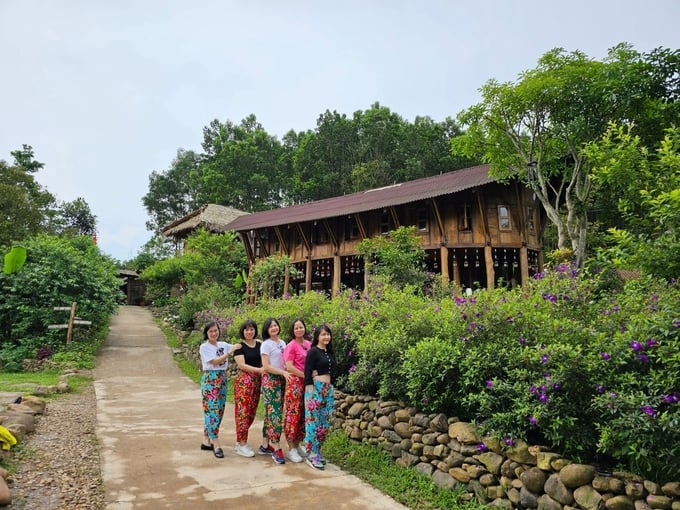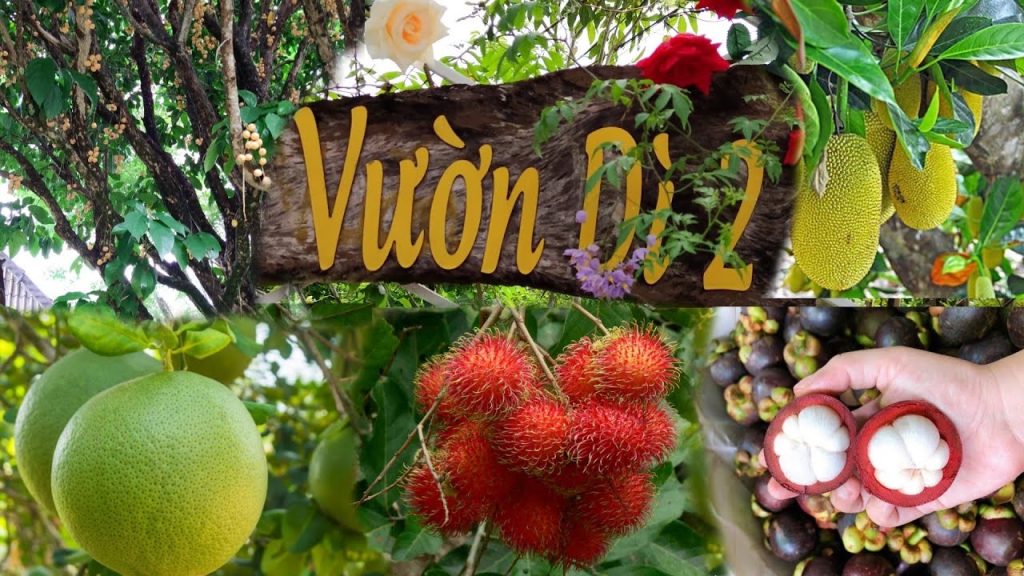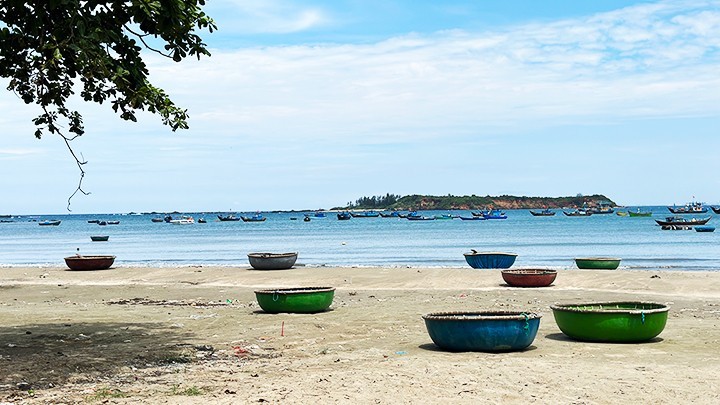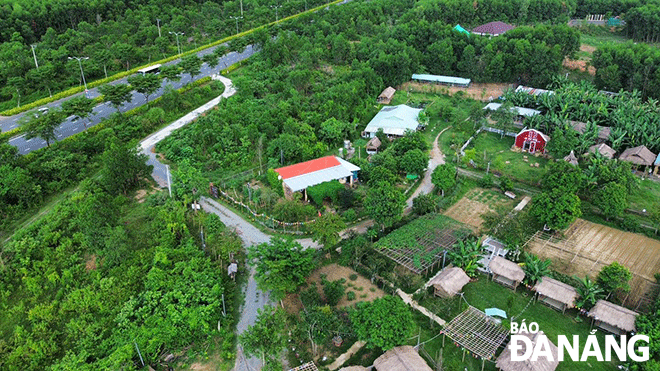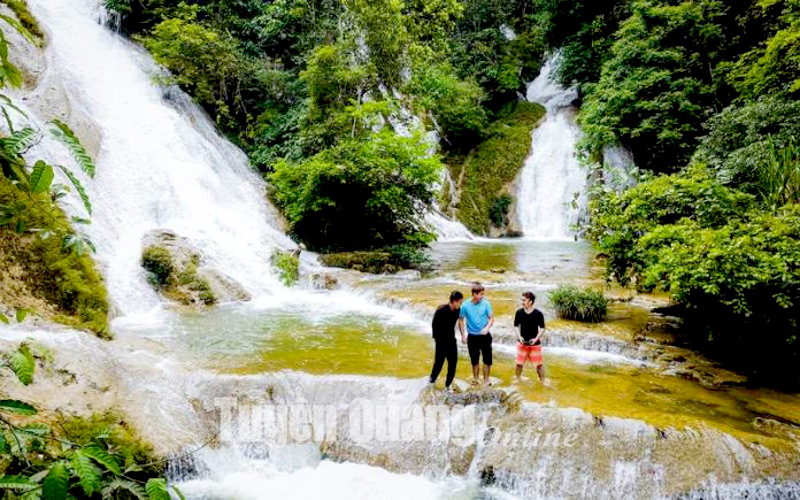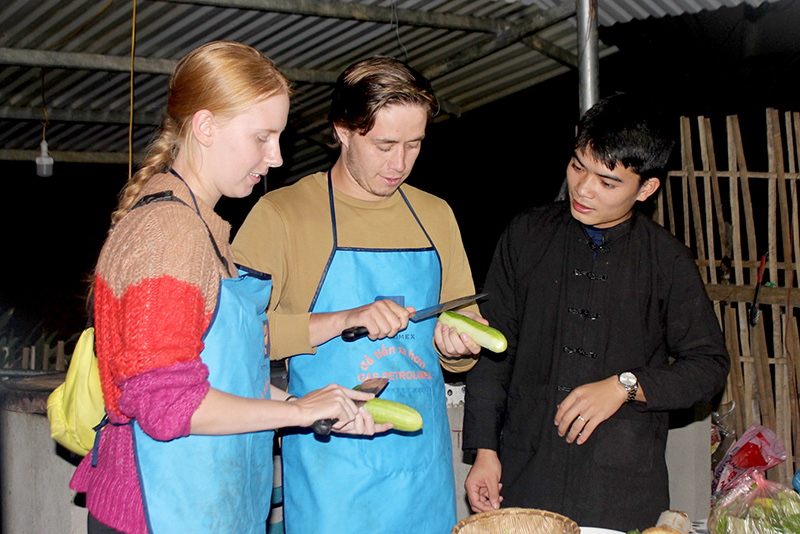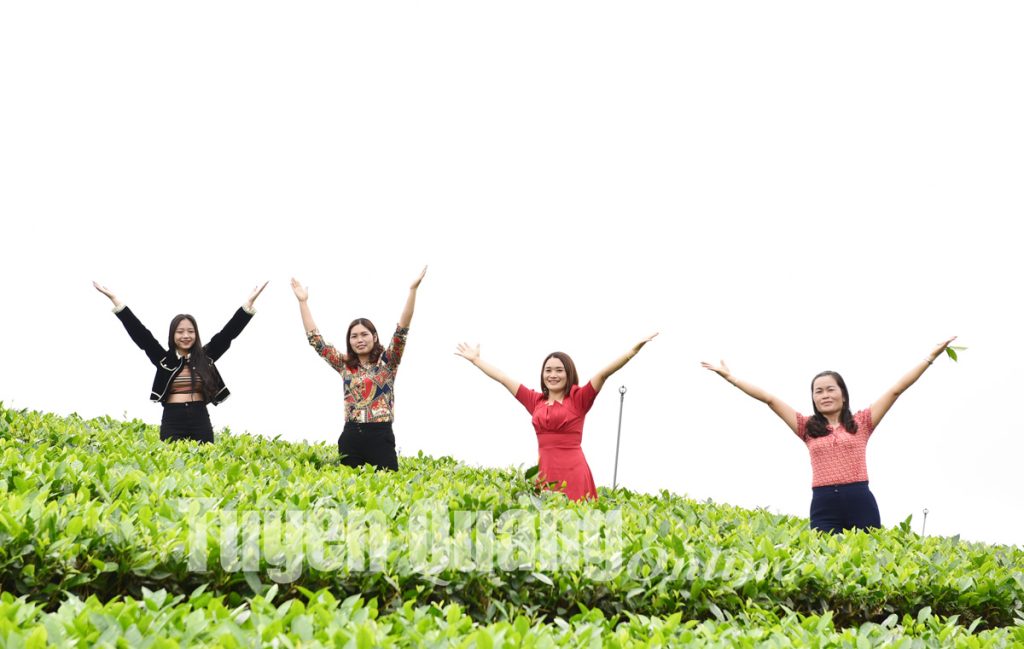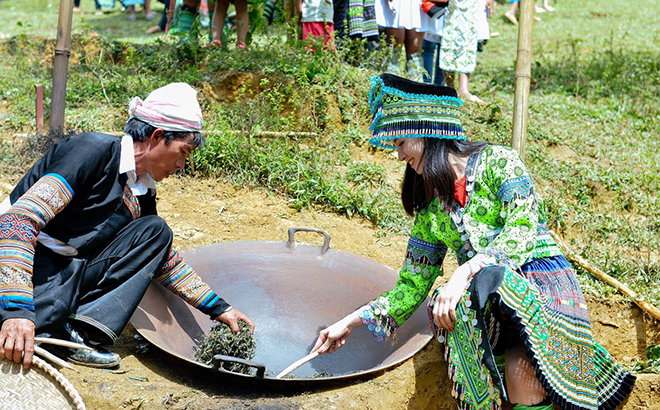Now, the summer rains have come to the terraced fields in Phong Dụ Thượng, this is the time when the locals head into the terraces to plant summer-autumn rice.
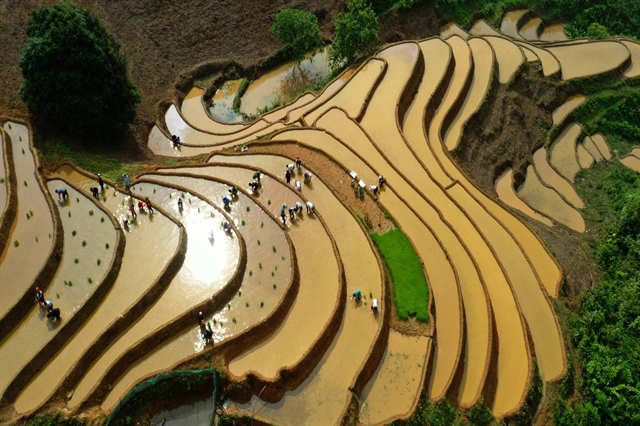 |
Exploiting the potential and strengths of majestic natural landscapes, rich ecosystems and unique traditional cultural identities of ethnic minorities, Phong Dụ Thượng Commune, in Yên Bái Province, is making efforts to promote tourism.
In the hot days of summer, we travelled to the province where the terraced fields, after months of dry days, were awakened by the first summer rains that began to pour down, water overflowing onto each terraced field like giant mirrors reflecting the clouds, sky, mountains and forests of the northwest. The terraced fields welcome water, reflecting the sky and bright rays of sunlight. The backdrop are the colourful mixed hills, stretching hundreds of metres along with primeval forests, endless cinnamon fields and peaceful streams.
The climate in this area is relatively harsh and farming is difficult. To adapt to nature, for hundreds of years, the locals here have worked diligently with their skillful hands, creativity and rudimentary agricultural tools, turning the highland soil into the fertile and majestic terraced towers seen today. Each field slope has several dozen steps. These are all associated with the history of resistance over the land from many generations of farmers who live here.
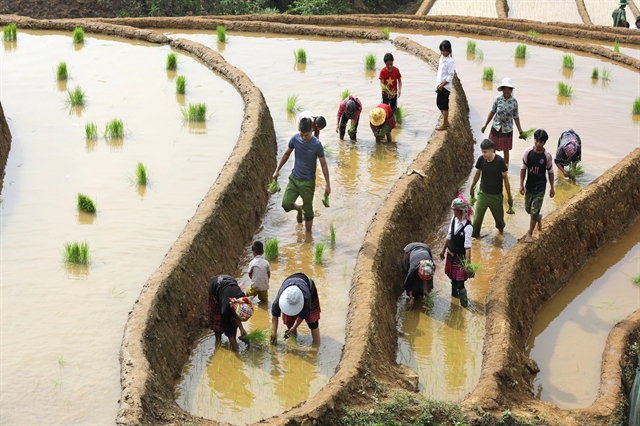 |
According to local people, the rainy season in the commune usually lasts from May to July, followed by the ripe rice season, from late August to mid-October. That is the time when Phong Dụ Thượng dresses itself in the eye-catching golden ‘sea of rice’ reaching up to the horizon.
As the summer rains come to provide water for the terraced fields in Phong Dụ Thượng, this is when the locals start working the levels to plant summer-autumn rice.
The best time to admire the scene is in the early morning with soft curves, glimpses of white clouds, bright sunlight at dawn, all with the captivating scent of mountains and trees.
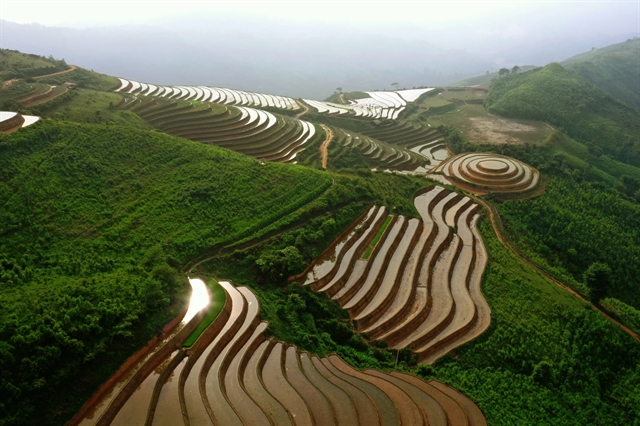 |
On the terraced fields, the locals not only grow rice but also raise sturgeon, creating a unique and new tourism element to enchant visitors. The fish-rice intercropping model not only contributes to increasing income per unit of the cultivated area, but also creates a new tourism offer.
In recent years, the authorities here have focused on investing and effectively exploiting tourism potential in a sustainable way. The entire area of terraced fields is estimated to be nearly 50ha at an altitude of about 1,000m above sea level. The terraced field terrain is located on a high mountain slope in Khe Táu Village but divided by waterfalls and streams. From here you can get a birds eye view of the entire landscape of the commune.
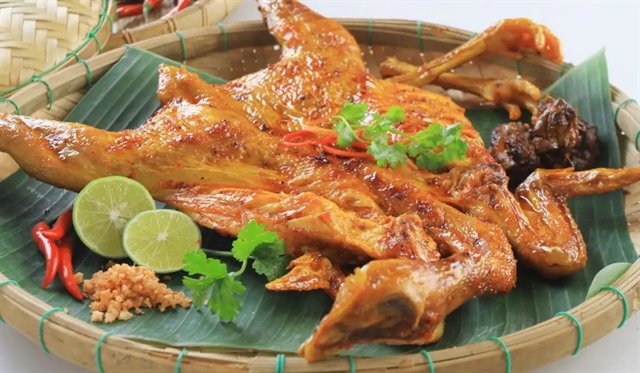 |
Along with the unique landscape, Khe Táu also has many culinary specialties such as black chicken, black pig, bamboo shoots, sticky rice and cardamom, served at traditional festivals such as Lồng tồng festival, along with Sênh tiền traditional dances and khèn dance, which have become highlights in visitor diaries.
Nguyễn Tuấn Đức from Thanh Hóa said: “The landscape of terraced fields here still retains its wild and unique features, so it is a perfect invitation to make a new discovery. In addition, what impressed us was the weather and climate, very fresh and cool, and the people here are especially friendly and welcoming.”
In addition to terraced fields in Khe Táu Village, there are many other tourist attractions in the commune. Among them is the hot spring area in Cao Sơn Village, the Khe Ban Waterfall in Bản Lùng Village and the Khe Mang Waterfall, all very attractive to visitors.
Phong Dụ Thượng is blessed by nature with primeval forests and hot mineral springs, along with unique attractions and cultural diversity from the ethnic groups of Dao, Tày and Mông. The combination of those factors has become something very special. The Mông, Dao, and Tày people living here bring their own special cultural treasures, this has given the district great potential to develop cultural tourism products combined with community tourism. They still maintain their original identities, from their costumes to their culture, customs and even with their sincerity, innocence and hospitality.
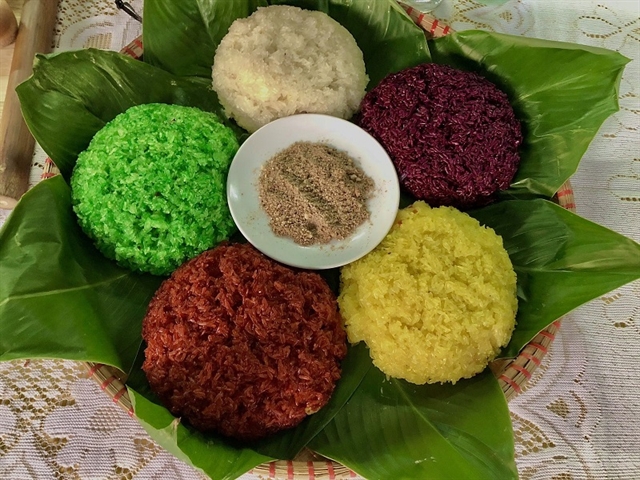 |
Preserving and developing traditional occupations, a number of cultural and tourist villages with bold identities have attracted a large number of people not just to visit, but to stay.
Lương Văn Thu, chairman of the Commune People’s Committee, said: “Based on existing potentials and strengths, the commune has focused on developing a variety of tourism products, including four main product groups, namely tourism community, cultural tourism, eco-tourism, resort and green tourism.”
Like a sleeping princess in the forest, the tourism potential in Phong Dụ Thượng is finally being awakened.
Lâm Giang
VNS – vietnamnews.vn

